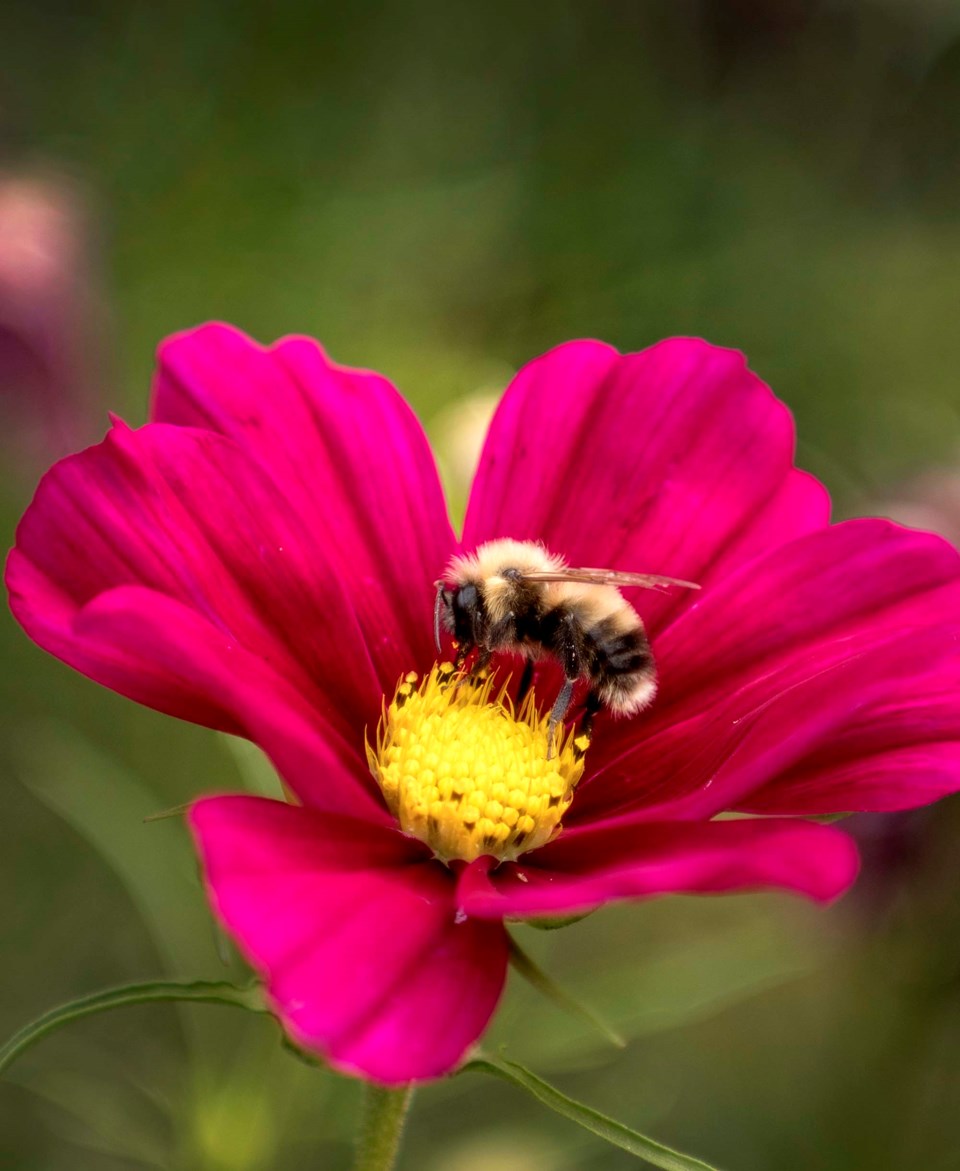Get set to celebrate the bees, bats and beetles of breakfast this week as Canada throws a spotlight on the world’s pollinators.
June 22 to 28 is National Pollinator Week in Canada. Organized by Pollinator Partnership Canada, this event encourages people to take steps to protect the creatures that help pollinate the world’s plants.
Scientists now realize a huge proportion of plants and crops depend on pollinating insects to reproduce, said University of Alberta naturalist John Acorn.
“You don’t get plants without certain bugs.”
Research suggests 75 to 95 per cent of all flowering plants rely on bees, butterflies, and other animals for pollination, reports Pollinator Partnership. Those plants produce about one out of every three bites of food we eat.
All this pollination happens by accident, Acorn noted. Bees and bugs eat pollen and nectar produced by flowers, and just happen to distribute leftovers stuck to their bodies as they move from flower to flower.
While honeybees get all the press, Alberta also has about 300 other native bee species that are busy pollinators, including sweat bees, plaster bees, mason bees and bumblebees, said Megan Evans of the Alberta Native Bee Council. About half of those are either in decline or so little researched that we can’t judge their conservation status.
Hover flies (which often camouflage themselves as bees) are another common pollinator, as are beetles, moths, bats and hummingbirds, Acorn said.
Pollinators face a wide array of challenges, including habitat loss, pesticides, disease, and climate change, Pollinator Partnership reports.
Acorn and Evans agreed the best way to support native pollinators is to raise native plants, or any flowering plants, in your yard to provide food and habitat. The Habitat Garden at the St. Albert Botanic Park has many examples of pollinator-friendly plants.
The Alberta Native Bee Council is hosting a webinar on native pollinators June 24. Email [email protected] for details.




